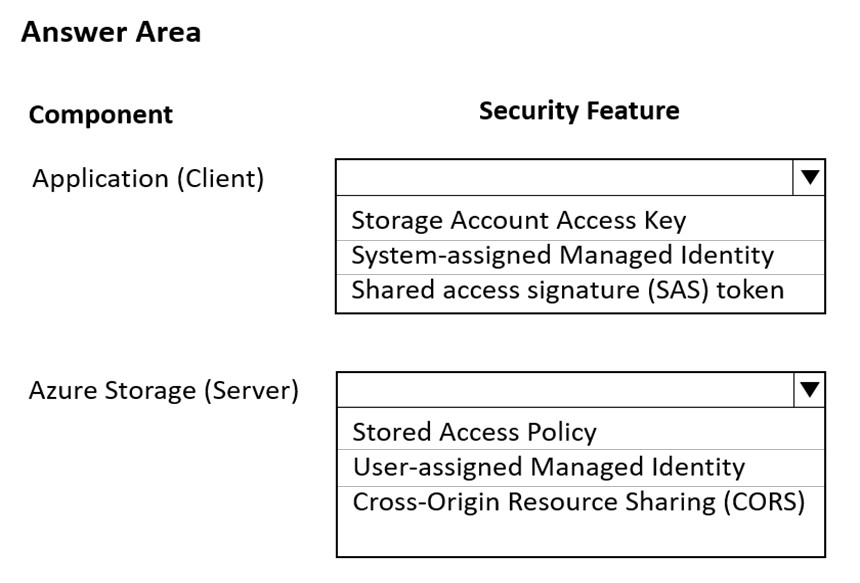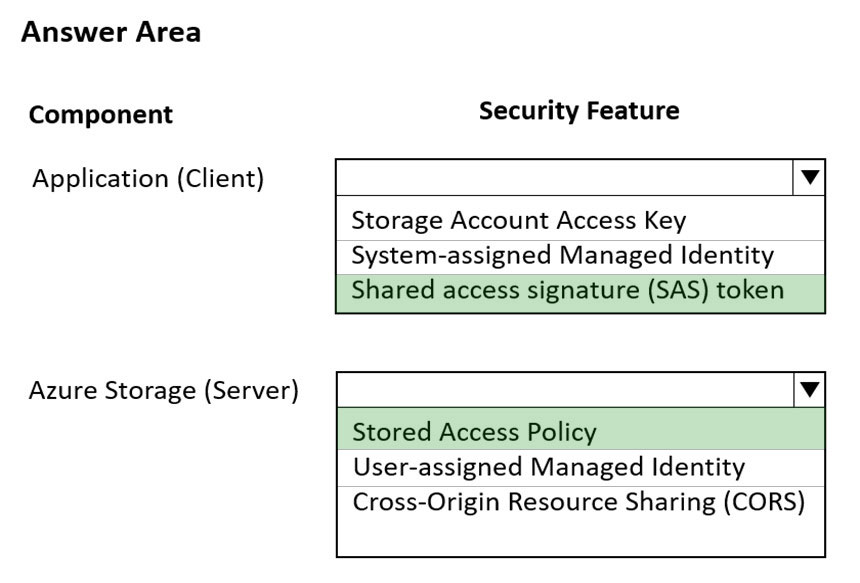

HOTSPOT -
You are developing an application to store and retrieve data in Azure Blob storage. The application will be hosted in an on-premises virtual machine (VM). The
VM is connected to Azure by using a Site-to-Site VPN gateway connection. The application is secured by using Azure Active Directory (Azure AD) credentials.
The application must be granted access to the Azure Blob storage account with a start time, expiry time, and read permissions. The Azure Blob storage account access must use the Azure AD credentials of the application to secure data access. Data access must be able to be revoked if the client application security is breached.
You need to secure the application access to Azure Blob storage.
Which security features should you use? To answer select the appropriate options in the answer area.
NOTE: Each correct selection is worth one point.
Hot Area:

coffecold
Highly Voted 2 years, 10 months ago0cc50bf
Most Recent 1 year agoDan696969
7 months, 2 weeks agomacobuzi
1 year, 11 months ago0cc50bf
1 year agovmakharashvili
2 years, 5 months agoOPT_001122
2 years, 8 months agofinnishr
2 years, 11 months agofinnishr
2 years, 11 months agoArturKon
2 years, 11 months agogmishra88
2 years, 10 months agosghaha
3 years, 3 months agoeazy_breezy_jeezy
3 years, 3 months ago